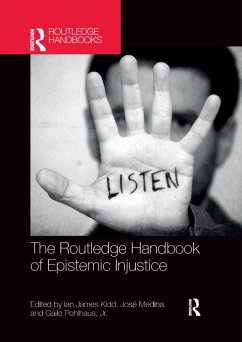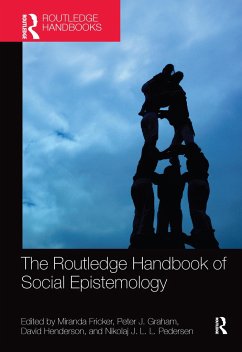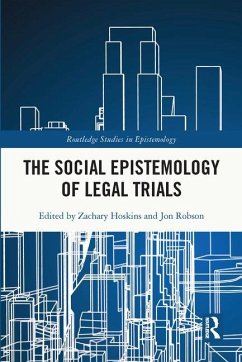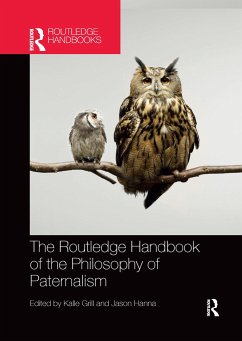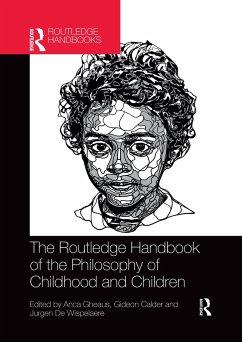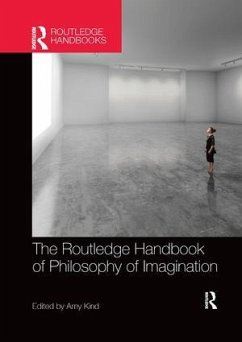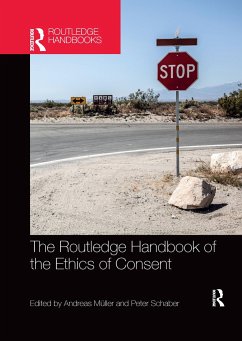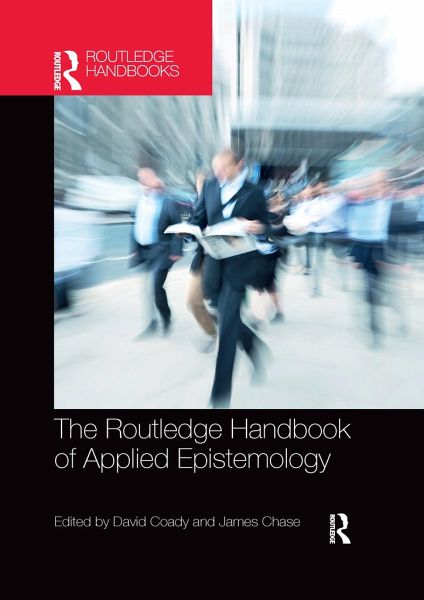
The Routledge Handbook of Applied Epistemology
Versandkostenfrei!
Versandfertig in 6-10 Tagen
52,99 €
inkl. MwSt.

PAYBACK Punkte
26 °P sammeln!
While applied epistemology has been neglected for much of the twentieth century, it has seen emerging interest in recent years, with key thinkers in the field helping to put it on the philosophical map. Although it is an old tradition, current technological and social developments have dramatically changed both the questions it faces and the methodology required to answer those questions. Recent developments also make it a particularly important and exciting area for research and teaching in the twenty-first century. The Routledge Handbook of Applied Epistemology is an outstanding reference so...
While applied epistemology has been neglected for much of the twentieth century, it has seen emerging interest in recent years, with key thinkers in the field helping to put it on the philosophical map. Although it is an old tradition, current technological and social developments have dramatically changed both the questions it faces and the methodology required to answer those questions. Recent developments also make it a particularly important and exciting area for research and teaching in the twenty-first century. The Routledge Handbook of Applied Epistemology is an outstanding reference source to this exciting subject and the first collection of its kind. Comprising entries by a team of international contributors, the Handbook is divided into six main parts:
The Internet
Politics
Science
Epistemic institutions
Individual investigators
Theory and practice in philosophy.
Within these sections, the core topics and debates are presented, analyzed, and set into broader historical and disciplinary contexts. The central topics covered include: the prehistory of applied epistemology, expertise and scientific authority, epistemic aspects of political and social philosophy, epistemology and the law, and epistemology and medicine.
Essential reading for students and researchers in epistemology, political philosophy, and applied ethics the Handbook will also be very useful for those in related fields, such as law, sociology, and politics.
The Internet
Politics
Science
Epistemic institutions
Individual investigators
Theory and practice in philosophy.
Within these sections, the core topics and debates are presented, analyzed, and set into broader historical and disciplinary contexts. The central topics covered include: the prehistory of applied epistemology, expertise and scientific authority, epistemic aspects of political and social philosophy, epistemology and the law, and epistemology and medicine.
Essential reading for students and researchers in epistemology, political philosophy, and applied ethics the Handbook will also be very useful for those in related fields, such as law, sociology, and politics.





